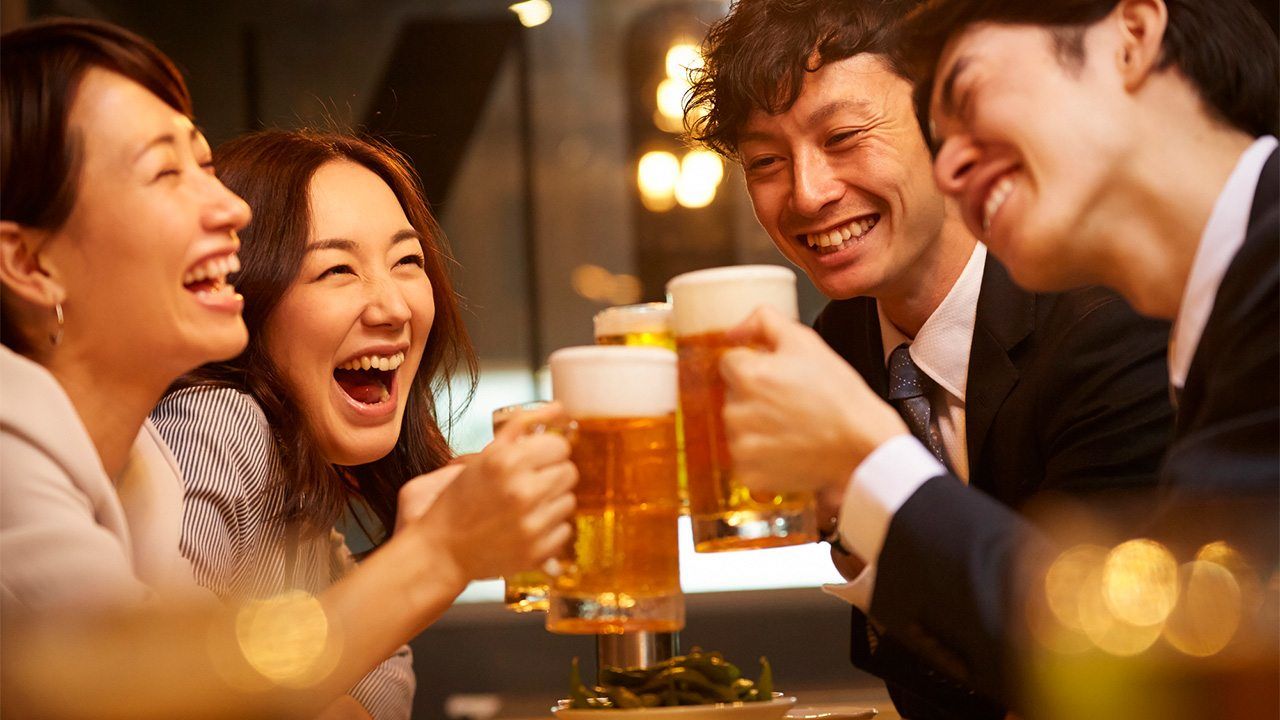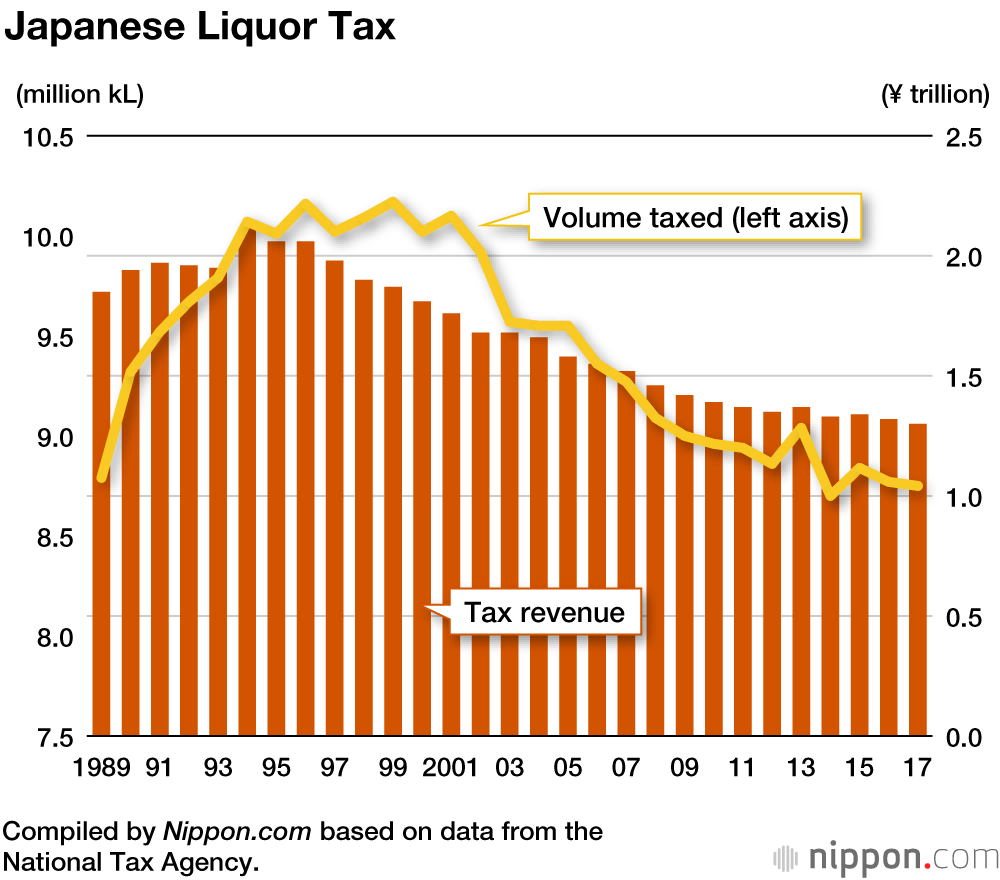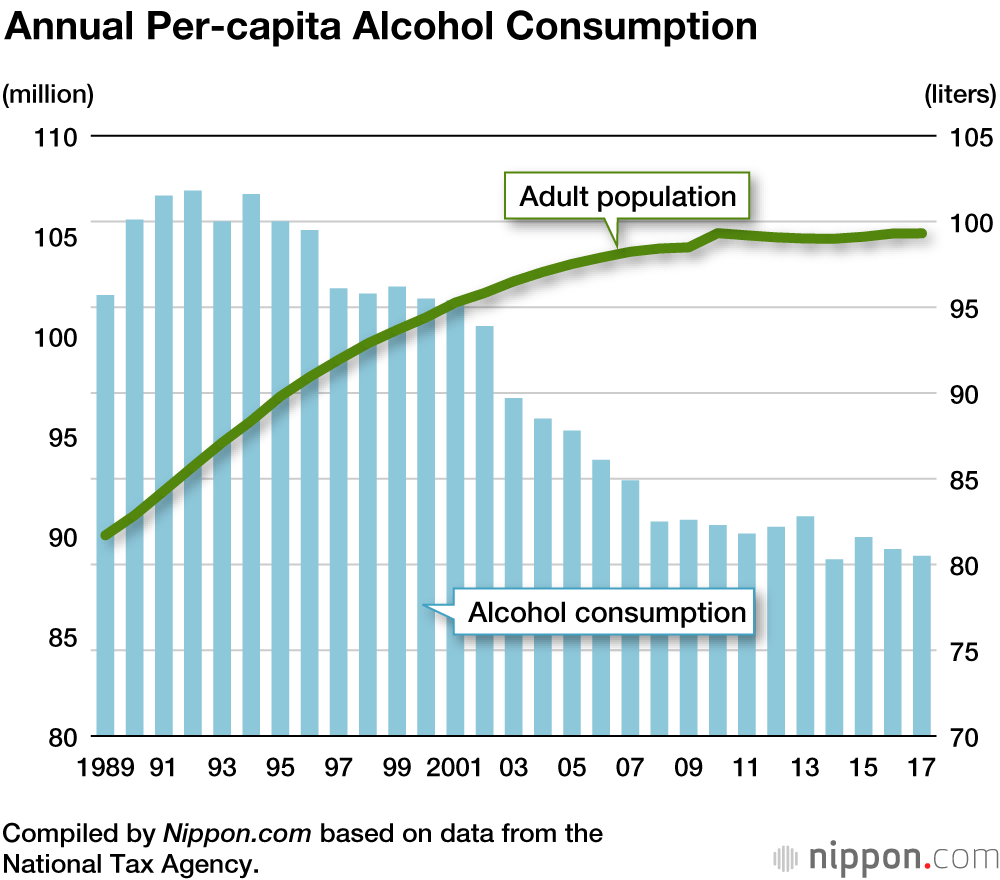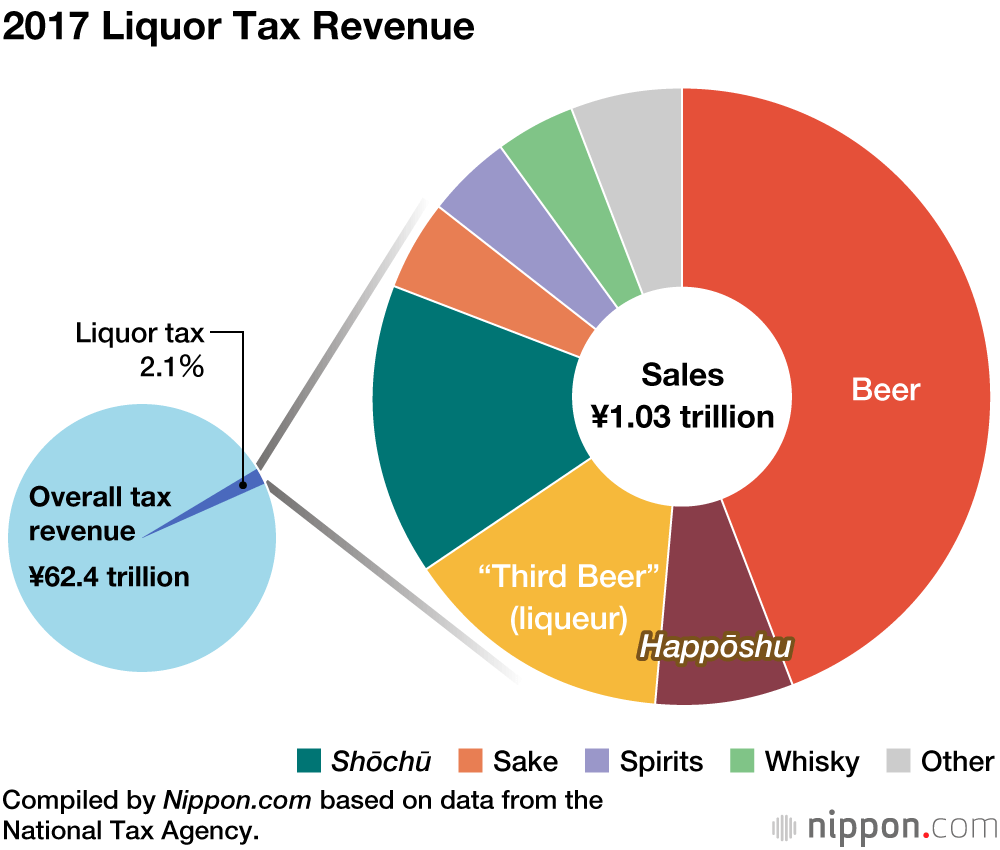
Tax Revenue from Alcoholic Beverages Falling as Aging Japan Drinks Less
Society- English
- 日本語
- 简体字
- 繁體字
- Français
- Español
- العربية
- Русский
Tax revenue from alcoholic beverages peaked in fiscal 1994 at ¥2.12 trillion and has steadily declined, totaling to just ¥1.3 trillion in fiscal 2017.
Japan’s aging population is an underlying factor in the decline in alcohol consumption. Japanese 60 and older accounted for 40.9% of the adult population in 2017, compared to 23.2% in 1989. Regular consumption of alcohol tends to increase sharply starting with 30-year-olds, but then declines significantly among people 70 and older. Although the overall adult population has not shrunk, it is gradually getting older.
Annual per-capita alcohol consumption in 2017 was 80.5 liters, down more than 20% compared to the peak consumption of 101.8 liters in 1992.
Looking by alcoholic beverage, beer generated over 40% of liquor tax revenue, or around ¥576 billion, while quasi-beer products like happōshu and “liqueur” drinks including shōchū highballs totaled more than ¥93 billion and ¥188 billion, respectively. Alcohol accounts for 2.1% of overall Japanese tax revenue.
(Translated from Japanese. Banner photo © Pixta.)


